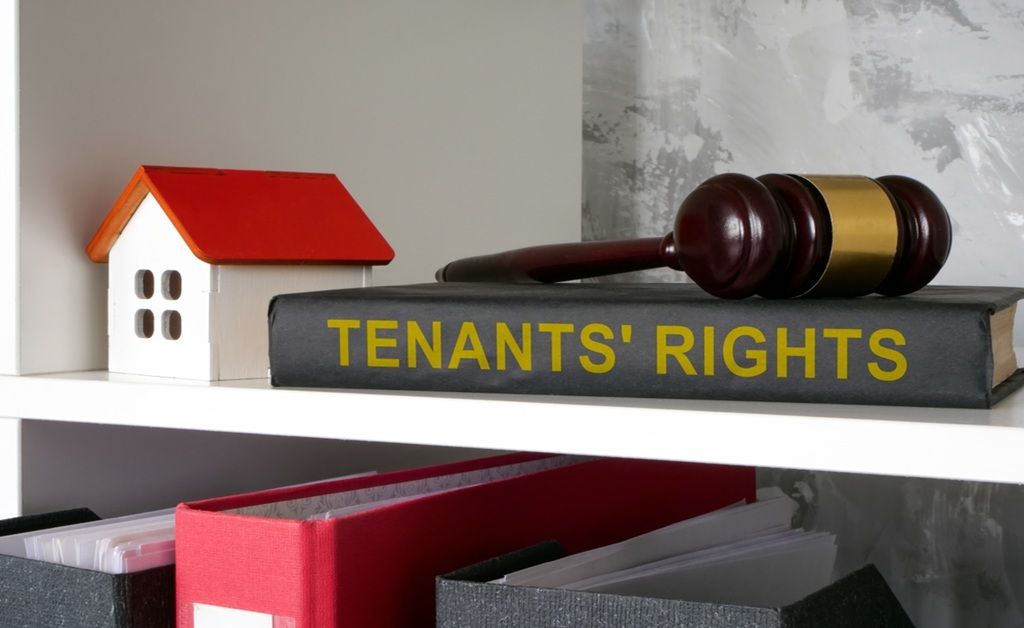Can a Property Manager Evict a Tenant Legally? How?
This is a subtitle for your new post

Property managers act as a middleman between rental property owners and tenants, managing day-to-day tasks such as rent collection, maintenance, and indeed, evictions when they are needed. Can a property manager evict a tenant? It is a matter of authorization, proper procedure, and legal grounds, which are vital for every landlord to understand.
Being aware of the eviction process protects your investment and also helps you comply with housing laws. Here is what every landlord of a rental property ought to know about legal evictions through property managers - especially when partnering with an experienced OKC property management company such as First Class Property Solutions.
Legal Grounds for Eviction
The property managers are only allowed to evict for specific, legally justifiable reasons. The most common legal reasons are non-payment of rent, which typically arises after tenants are in arrears on payment after any grace period laid out in the lease agreement.
Lease violations also warrant eviction proceedings. They may be in the form of unauthorized pets, unapproved subletting, noise, or damage to the property beyond normal wear and tear. Criminal activity on the premises is another solid legal basis for eviction.
Others permit evictions for owner occupancy or significant property renovation, although these "no-fault" evictions typically call for longer notice periods and, in some cases, relocation assistance.
The Eviction Process
Do property managers handle evictions? The answer is yes - they begin the eviction process with proper notice. Property managers must give tenants written notice with specifications of violation and resolution or departure deadline. Notice times vary by state and nature of violation, typically 3 to 5 days for non-payment and 30 days for lease violations.
In case the tenants fail to move out within the notice period, property managers can file an unlawful detainer action in the local housing court. The lawsuit basically requests the court to grant them permission to evict the tenant and recover possession of the property.
These are followed by court hearings, where both parties plead their cases. Tenants may raise defenses like uninhabitable conditions, discrimination, or procedural flaws. If the court finds in favor of the property owner, it enters a judgment for possession.
Lastly, law enforcement officers carry out the eviction order, physically evicting tenants and their property if they have not left voluntarily.
Tenant Protections and Rights
Tenants also have significant legal rights when it comes to eviction proceedings. They have the right to reasonable notice, representation by an attorney, and to contest eviction charges. Most jurisdictions provide additional protection to elderly tenants, families with minor children, or those who experience financial difficulty.
Property managers may not conduct "self-help" evictions - locking tenants out, deactivating utilities, or removing property without court orders. Such actions are unlawful and can lead to substantial penalties to property owners.
Discrimination based on protected characteristics like race, religion, family status, or disability is specifically prohibited and can invalidate eviction proceedings entirely.
Preventing Illegal Eviction
Seasoned property managers know local housing laws and follow correct procedure to evade wrongful eviction suits. They maintain detailed documentation of lease violations, communication attempts, and notice service - critical evidence if cases make it to court.
Choosing eviction-friendly property management can reduce your legal risk since these professionals adhere to complex housing regulations. They remain up to date with changing laws and have the ability to manage the subtle requirements that vary significantly from one area to another.
Effective tenant screening, concise lease agreements, and thorough policy enforcement likewise reduce the need for eviction actions, safeguarding your investment in property and relations with tenants.
Protecting Your Investment Through Legal Compliance
Property managers such as First Class Property Solutions are entitled by law to evict tenants where procedures are correctly followed and where there are reasonable grounds. Nevertheless, given that housing law is complicated, professional management is the requirement of the majority of property owners.
If you’re considering how to handle evictions efficiently with a professional property management, remember that we safeguard your investment by making all evictions conform to the requirements of the law while reducing expensive errors that may expose you to liability or postpone possession recovery. Why not reach out to our team for help today?





